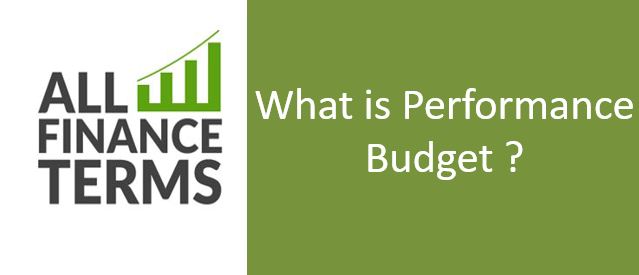Definition of Performance Budget
Performance Budget is a budget that shows the feedback of sources and the production of solutions for each unit of an organization.
Brief Explanation of Performance Budget
This type of price is commonly used by the government to show the link between the resources provided to the community and the results of these types of solutions.
Decisions created on these types of costs focus more on results or results solutions than on choices created depending on the information. In other words, allowance of resources and sources are depending on their potential results. Performance Budgets place priority on staff’s persistence for producing great results, particularly in the community industry. Visibility of Performance Budgets is one significant benefit because taxpayers see results during every cost management pattern when good applications get financing, whereas bad applications are decreased. Another is quantitative research and feedback from workers that have an interest in their divisions. Workers and program supervisors know what cost management main concerns are needed to further the goals of the organization when their performance is analyzed. One significant drawback to Performance Budgeting is the relative cost between two sections. Supplies, the amount of work, and office needs may vary from one aspect of the organization to the next, which makes larger costs more challenging. Some department leads may increase or bloat their achievements to ensure better financing during the next budget pattern. Performance Budgets are great for routine applications, but if emergency needs occur there may be complications to try to get more financing.


